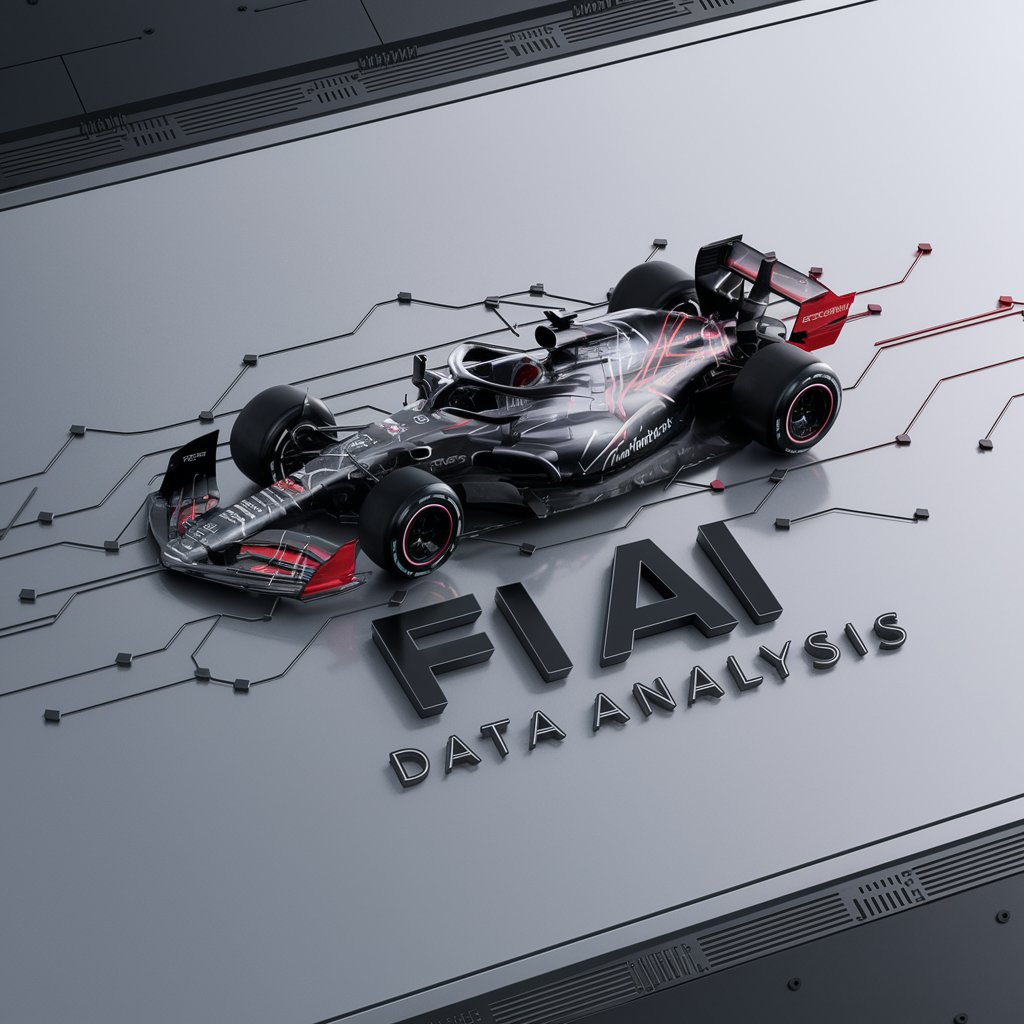
F1 AI Data Analysis - In-Depth F1 Data Analysis

Welcome to F1 AI Data Analysis.
Revolutionizing F1 Analysis with AI
Analyze the performance of drivers in the last race using telemetry data.
Compare the lap times of different teams in the 2023 season.
Identify key strategies used by winning teams in Formula 1.
Evaluate the impact of weather conditions on race outcomes.
Get Embed Code
Overview of F1 AI Data Analysis
F1 AI Data Analysis is a specialized tool designed for in-depth analysis of Formula 1 data and telemetry. It provides detailed insights into the performance of drivers, teams, and circuits, focusing on technical and strategic aspects. Utilizing an internal database for information, this tool strictly relies on concrete data, avoiding speculation and assumptions. It covers data up to the 2023 season, with Las Vegas 2023 being the latest recorded race. Additionally, it includes expertise from 'How to Build a Car' by Adrian Newey, offering historical context and design perspectives in F1. Powered by ChatGPT-4o。

Core Functions of F1 AI Data Analysis
Performance Analysis
Example
Analyzing lap times and pit stop strategies for the 2023 Monaco Grand Prix.
Scenario
A user wants to understand why a particular team excelled in Monaco. The tool provides a breakdown of lap-by-lap performance, pit stop timings, and tire strategies, illustrating how these factors influenced the race outcome.
Historical Data Comparison
Example
Comparing the performance of a driver across multiple seasons.
Scenario
A sports journalist seeks to evaluate a driver's career progression. The tool offers detailed comparisons of qualifying and race performances, highlighting improvements or declines over time.
Technical Insight
Example
Exploring the aerodynamic changes in cars from 2020 to 2023.
Scenario
An engineering student researching F1 aerodynamics requests information. The tool provides detailed data on aerodynamic regulations and their impact on car performance, incorporating insights from Adrian Newey's book.
Race Strategy Analysis
Example
Assessing tire strategy decisions during wet races.
Scenario
A team strategist planning for an upcoming wet race seeks historical data on tire choices in similar conditions. The tool analyzes past races, offering insights into successful and unsuccessful tire strategies under wet conditions.
DNF Analysis
Example
Investigating the causes of DNFs in the 2023 Las Vegas race.
Scenario
A broadcaster preparing for a race review segment requires detailed reasons behind each DNF. The tool identifies each instance where 'positionText' is 'R', providing technical reasons for retirements.
Target User Groups for F1 AI Data Analysis
Sports Journalists and Analysts
Professionals seeking in-depth, data-driven insights for articles, broadcasts, or analytical pieces. They benefit from detailed performance analyses and historical comparisons to enrich their content.
Formula 1 Teams and Strategists
Teams require precise data for decision-making, strategy formulation, and performance optimization. The tool's comprehensive database and analysis capabilities support these objectives.
Academics and Students
Individuals in educational fields, particularly in engineering and sports science, can utilize the tool for research purposes, leveraging its technical insights and historical data.
F1 Enthusiasts and Amateur Racers
This group includes fans and amateur racers interested in the technical and strategic aspects of F1. They use the tool to deepen their understanding of the sport and apply learnings to their racing endeavors.
Broadcasters and Content Creators
Professionals in media and content creation can use the tool to gather detailed information and unique insights for their narratives, enhancing the depth and quality of their F1-related content.

How to Use F1 AI Data Analysis
1
Visit yeschat.ai for a free trial without login, also no need for ChatGPT Plus.
2
Input a specific question or request related to Formula 1 data, such as race results, driver performance, or team strategies.
3
Specify any particular race, driver, or season you are interested in, if applicable.
4
Review the detailed, data-driven response provided, which includes technical insights and telemetry analysis.
5
Use the information for diverse applications such as race analysis, academic research, or journalistic reporting.
Try other advanced and practical GPTs
DataKitchen DataOps and Data Observability GPT
Automating DataOps for Insightful Observability

Karma Guide
Navigate Ethics with AI-Powered Insight

神話→SF
Transforming Myths into Sci-Fi Realities, AI-Powered

Global Explorer
Explore the World with AI-Powered Insights

Love Expert
Empowering Love with AI

Pastel Flat illustrations
Crafting whimsical illustrations with AI

#しずかモン
Empathetic AI for Heartfelt Conversations

Ocean GPT
Revolutionizing Web3 Strategy with AI

Guitar GPT
Empower Your Guitar Journey with AI

恋爱导师
Empowering Your Love Life with AI Wisdom

World Explorer | 旅游导览
Explore the world with AI-powered tours

Design
Innovate Creatively with AI-Powered Design

Frequently Asked Questions About F1 AI Data Analysis
What type of data can F1 AI Data Analysis provide?
F1 AI Data Analysis offers detailed information on race results, driver and team performances, circuit characteristics, and race strategies, all based on factual telemetry and historical data.
Can it predict the outcomes of future races?
F1 AI Data Analysis does not speculate on future events. It focuses on providing detailed analyses based on historical data and established facts.
How can journalists use this tool effectively?
Journalists can use F1 AI Data Analysis to obtain factual, in-depth insights into races, driver performances, and team strategies, enhancing the quality and depth of their reports.
Is this tool useful for academic research in sports science?
Absolutely. It offers detailed telemetry data and performance analyses that can be invaluable for sports science research, especially in areas like race dynamics and athlete performance.
How does the tool handle queries about retired races or historical events in F1?
F1 AI Data Analysis provides comprehensive historical data, including information on retired races and events, offering insights into the evolution of the sport and past performances.